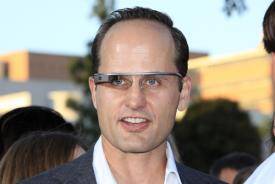

Those types of contact lenses are probably not TOO far off, but Google Glass is here now, and those maps in the corner of your eye aren’t too far behind.
Will Glass be successful? Only time will tell. Even if they’re not, it would only be a matter of time until someone creates something similar that takes off and becomes a starting point for the next wave of life changing products, i.e.. the wheel, the smartphone, or putting hops in beer. When the time comes for products like this to become mainstream, it won’t only revolutionize the consumer electronics industry, but the back-end data processing and handling industry as well.
Think about where we are right now, pre-mass proliferation of Glass. The sheer quantity of big data flowing all over the globe is almost inconceivable, and this is data that requires some sort of conscious decision to send/receive, whether it’s actively searched for or push notifications send it to your device. Now imagine data being collected everywhere you look! Everything you look at will be collected, extracted, transformed, and loaded. Right now, there’s really only one computer capable of that volume and speed of processing and analysis in real-time. Anyone? Bueller? Yes, the human brain. Forget the fact that we only use 10% of it. Do we truly know how it does what it does? Obviously doctors know about lobes and hemispheres and synapses, but we don’t know how the brain processes information the way we know how a computer works.
What we do know, or can at least surmise, is that a growing number of businesses will need to be able to store and process huge amounts of semi-structured and unstructured data. As a result, these companies will need their own data centers or occupy more cloud space, while using technologies like Hadoop to do the processing.
The advent of this technology marks a new challenge in all sectors of the big data world. Based on where we are right now, I have no doubt that we will be able to conquer it.
Google Glass (Joe Seer / Shutterstock.com)